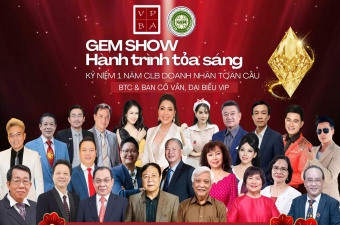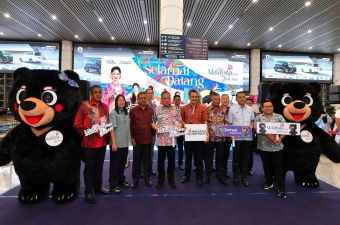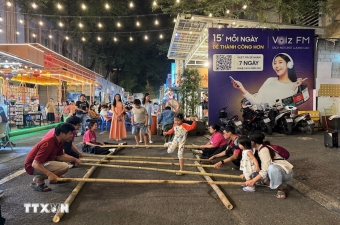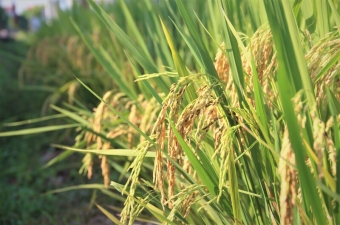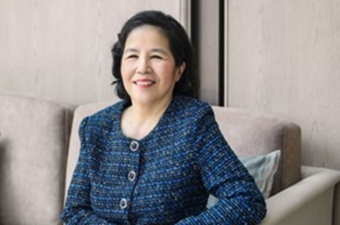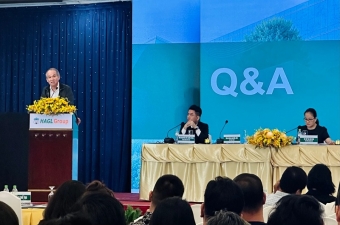The story of Vietnam through a culinary perspective (Part 2)

The journey to introduce Vietnamese cuisine to the world began a long time ago, but it has never been as important as it is now - in the context of Vietnam aiming to strengthen the national brand on the international stage.
Recently, Madam Ton Nu Thi Ninh - President of Ho Chi Minh City Peace & Development Foundation, Former Vietnam’s Ambassador to the European Union, Belgium, and Luxembourg initiated the discussion series "Vietnam's story through the culinary perspective", to exchange and share creative solutions and effective promotion strategies to enhance the value of Vietnamese cuisine and put Vietnamese specialities on a prominent position of the world culinary map.
Experts in the Vietnamese culture and cuisine share their opinions on the topic as below.
Mr. La Quoc Khanh - Permanent Vice President, General Secretary of Vietnam Culinary Culture Association (VCCA), former Deputy Director of Ho Chi Minh City Department of Tourism
Vietnamese cuisine has created a philosophy and art of living
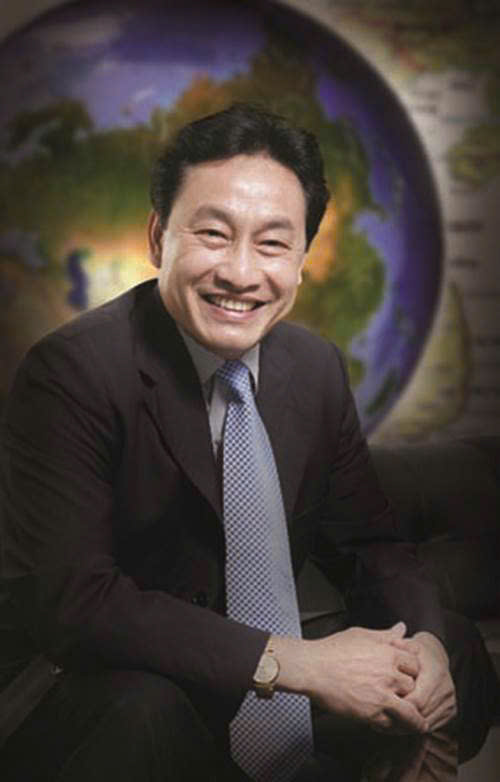
VCCA is an association with the mission of contributing to promoting Vietnamese culinary culture in the country and around the world. Could you please tell us about VCCA's activities in 2025?
In 2025, VCCA will focus on implementing important activities, notably the project "Vietnam's Foodmap". Particularly, VCCA will build the technology platform "Vietnam's Foodmap" on Super App and Web platforms. This is a space to preserve, connect and enhance the values of the nation's culinary cultural heritage; at the same time, promote business and trade activities in the culinary industry. This project not only focuses on cuisine but is also Vietnam's first Super App in this field, with the goal of building a comprehensive platform, connecting knowledge, community and promoting business on an international scale.
VCCA will promote and implement international integration activities to enhance the value of Vietnamese cuisine and develop international cooperation relationships, such as
- Media sponsor and Head of the Jury for the "Asia's Excellent Taste Awards 2025" competition organized by GCU (Global Culinary Union) in Hanoi. This competition aims to honor the best culinary products in Asia, creating opportunities to promote Vietnamese cuisine to the world and affirm the Vietnamese culinary brand in the international community.
- The launching event of the project “Vietnam’s Foodmap”, announcing 500 special Vietnamese dishes with fish sauce. This is a major project to affirm the richness and diversity of Vietnamese cuisine; at the same time, promote the use of fish sauce – a traditional product of Vietnam in preparing Vietnamese dishes.
- Ceremony to honor Vietnamese Culinary Culture Artists who have contributed and dedicated to Vietnamese Culinary Culture. This is an official recognition based on the role and function of a national Culinary Culture Association, and hosted by the Ministry of Home Affairs and the Ministry of Culture, Sports and Tourism, to honor and glorify individuals who have made outstanding contributions to preserving and promoting the value of Vietnam's traditional culinary heritage.
- The Cooking Contest “Delicious Family Dishes – Journey of Love “ is designed for families nationwide to honor family affection and traditional culinary values in daily life, encouraging families to share traditional dishes and stories associated with their family's culinary culture.
- The 2026 Vietnamese Tet Festival. Aside from being an annual event serving dwellers of HCM City and neighboring areas during Vietnam’s most special holiday, the 2026 Vietnamese Tet Festival will be held to introduce the culinary culture of the three regions on the traditional festive occasions.
- Implementing the Project "Vietnam, the journey to become the new Culinary Capital of the World" to affirm the country's position on the World Culinary map.
- Vietnamese Tea Culture Program - successfully organized 2 episodes in Ho Chi Minh City and 1 episode in Da Nang. In addition to being the host of the tea cultural activities, VCCA also actively participates in supporting, consulting and accompanying events in several localities, such as Quang Binh Culinary Culture Festival 2024, Sen Nghe An Tourism and Culinary Festival, Lobster Festival - Cam Ranh 2024, ...
- Training courses and workshops for members and the public: VCCA will periodically organize training courses and workshops for members and the public. These courses will focus on professional skills such as culinary skills, soft skills, management and communication skills, and event organization skills. Specific programs include: Workshops (held once a month for 12 months); Training courses (held quarterly for members, including short-term training courses on professional fields related to cuisine.
In your opinion, what factors are needed to effectively promote Vietnamese cuisine to international friends?
We are considering the following factors and I believe that these factors, once skillfully combined, can help Vietnamese cuisine reach international friends more effectively and build a positive image in the global market.
1- Create quality and attractive Vietnamese Cuisine content:
+ Ensure promotional content is presented in many different languages in order to easily reach many target groups in each market.
+ Invest in images, videos, and inspirational stories related to Vietnamese cuisine to attract the attention of Vietnamese consumers and evoke interest in the target market.
+ Take advantage of international media platforms: Build a presence of Vietnamese cuisine on popular global social networks (such as Facebook, Instagram, Twitter, and LinkedIn).
+ Publish articles about Vietnamese culinary culture on famous online-newspapers, blogs or forums related to Vietnamese cuisine.
2- Cooperate with international partners:
+ Find and cooperate influential organizations or individuals in the international market to promote on Vietnamese cuisine (For example Taste, Atlas,..)
+ Participate in international events, seminars, or exhibitions to introduce Vietnamese cuisine.
+ SEO and online advertising strategies, improve website rankings, appear high on international search engines, etc.
+ Run advertising campaigns targeting international audiences through Google Ads, Facebook Ads, or local advertising platforms of each country.
3- Build credibility and trustworthiness:
+ Provide evidence, achievements or reviews from international customers to prove the quality and value of Vietnamese cuisine.
+ Ensure that all information is transparent and easy to understand for international audiences.
With many specific plans shared above, what do you expect about the spread of Vietnamese cuisine to the world in the near future?
Vietnam has many resources of ingredients for culinary purposes; in which the uniqueness and diversity of vegetation is a rich source of raw materials, creating healthy dishes. The ingredients that can be used to create spices are not only for making delicious food items but also for producing medicines for medical treatment. These medical herbs can also be used to help balance of yin and yang, and maintain the harmony of the five elements. The sophistication and diligence of Vietnamese people have created a philosophy of life and the art of living through cuisine.
This is an important goal when spreading Vietnamese cuisine to the world to create widespread awareness of a high-quality Vietnamese brand or product, to bring real value to the international community. I hope that the promotion of Vietnamese cuisine will not only help expand market share, but also contribute to building a positive image for Vietnamese products and services in the international arena.
In addition, access to large markets will also promote cooperation and economic and cultural exchanges between Vietnam and other countries, thereby this will help create a more sustainable and comprehensive development environment.
Thanks for your sharing.
| Vietnam Culinary Culture Association (VCCA) was established on June 12, 2017 with the mission of orienting, collecting, exploring, restoring and promoting culinary cultural values. Special attention is paid to historical and traditional factors to create innovations suitable for contemporary culinary integration with the world. |
Journalist Khổng Loan - Public Speaking Coach
Cuisine is root of Vietnamese lifestyle and culture
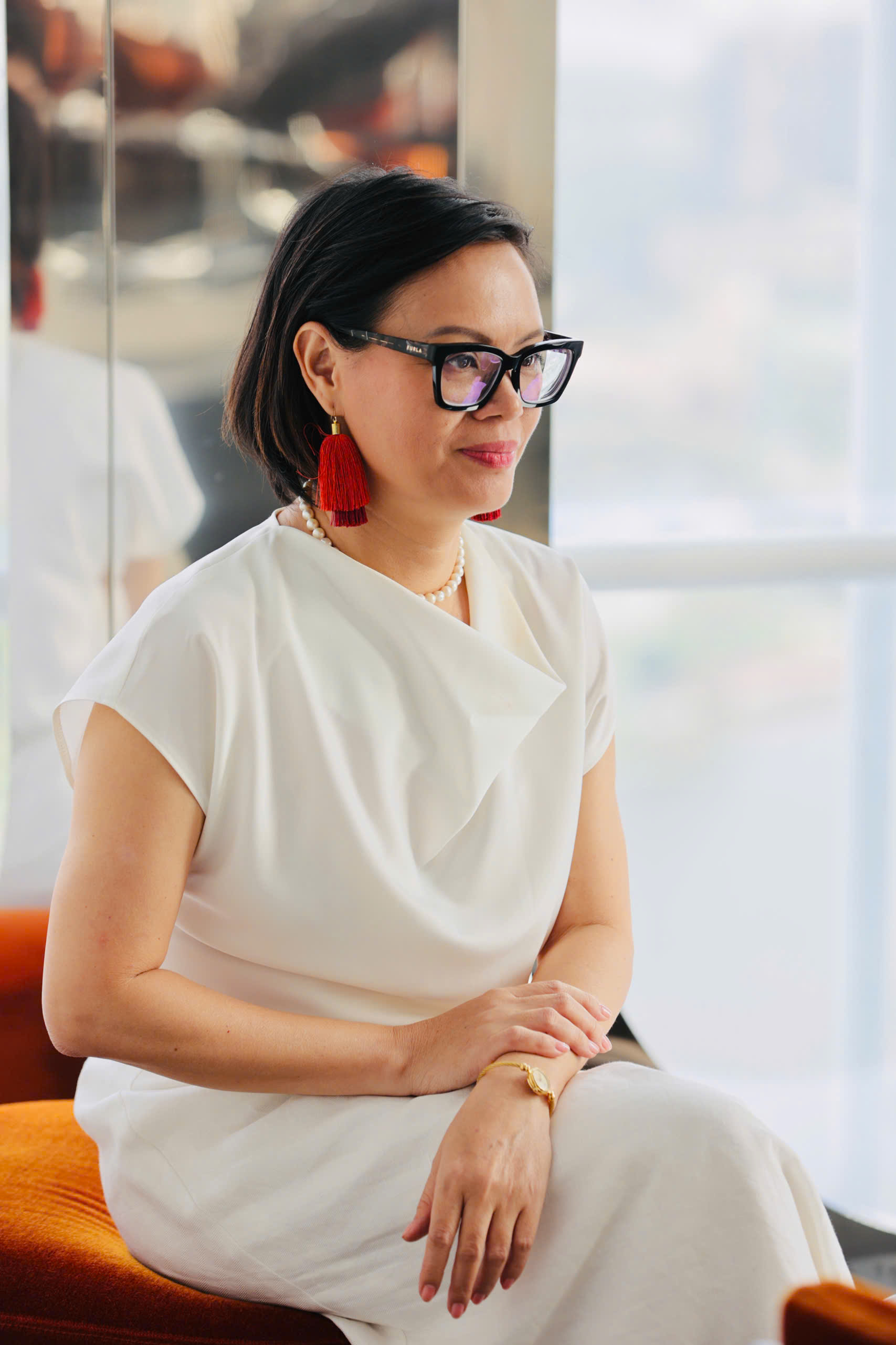
Can you share about the initiative “Câu chuyện Việt Nam - Vietnam’s Narrative”?
“Câu chuyện Việt Nam - Vietnam’s Narrative” is the initiative of the veteran diplomat Tôn Nữ Thị Ninh –President of the Ho Chi Minh City Peace & Development Foundation, former Ambassador to the European Union and Belgium, and former Vice Chair of the National Assembly’s Foreign Affairs Committee, Đặng Soan (CEO of S-World) and me.
It aims to identify and promote Vietnam’s brand, the voice of our country in the world. The initiative includes a series of panel discussions (one of them is about “Defining and Positioning Vietnamese Cuisine in the World”), Vietnam Speakers’ MasterClass, and other activities which help connect and promote Vietnamese talents and companies worldwide.
In the panel discussion on “Defining and Positioning Vietnamese Cuisine in the World”, we wanted to gain deeper insights about culinary identity and values of Vietnamese ethnic groups. Besides, we shared inspiring stories about culinary culture, factors and people who have shaped their influence in Vietnamese cuisine.
The discussion was hosted by Tôn Nữ Thị Ninh, who is expert in cultural diplomacy and has remained steadfast in her mission to promote Vietnam to the world. She organized the successful two-day “Vietnam Moment” forum focusing on Vietnam’s national branding last year. We welcomed experts, leaders, and business people in sectors of culture, cuisine, agriculture, tourism, and Vietnam’s signature products, to have more ideas and experiences from all social groups. Additionally, we invited social observers and professionals to provide insights into Vietnamese cuisine through film and mass media. They shared interesting viewpoints on the role of cuisine in Vietnam’s national branding.
From your point of view, how does cuisine connect with Vietnam’s brand?
We believe that in Vietnam, cuisine is a channel exposing Vietnamese lifestyle and culture. Therefore, everyone can easily approach the country’s distinctiveness through the channel.
Cuisine is an enduring part of our country’s foundation, preservation, and development. It’s not just a “trend” or “movement” driven by investors in modern society. It is fundamental and stable, standing the test of time. Westerners' dining habits clearly differ from ours, and even within Vietnam, each region has its own culinary characteristics shaped by customs and traditions—originating from climate, nature, and local produce.
We can see many characteristics of the Vietnamese through cuisine. According Former Ambassador Tôn Nữ Thị Ninh, this is the openness. She said, "Openness is a feature of the Vietnamese and their culture. Vietnamese culture does not close itself off. The country’s cuisine and culture are diverse and flexible."
Those make Vietnamese food unique. We believe that if our stories are shared to the world, the cuisine will be more well-known, and Vietnam’s national brand will be loved.
What are your expectations for the development of the Vietnamese culinary brand in the near future?
Vietnam’s journey to introduce its cuisine to the world began long ago. But we believe it has never been more crucial than it is today, in the context that the country is trying to make its national brand stronger worldwide.
Vietnam has 54 ethnic groups and culinary stories like “goldmines” waiting to be explored and welcoming the world to Vietnam and vice versa.
Fortunately, we have worked with business leaders and executives from both Vietnamese and international companies. We also want to show Vietnam as a dynamic, distinctive, and harmonious nation. Therefore, we will launch a series of events covering diverse themes and pillars, aiming to further promote Vietnam’s brand.
Thank you for your sharing.
|
Journalist Khổng Loan has more than 20 years of experience in journalism and media in Vietnam. She spent 12 years serving as Deputy Managing Editor of Forbes Vietnam magazine. Through the “Spokesperson Training Vietnam” initiative, Khổng Loan is currently a public speaking coach. She helps leaders, executives, and talented artists develop professional communication skills and be able to navigate today’s dynamic and global media landscape. |
Mr. Sam Korsmoe - Writer
Vietnam has great potential to build a global culinary brand

It is known that you have lived and worked in Vietnam for about 20 years. Could you please tell us about your activities and projects related to Vietnam and cuisine?
During my time in Vietnam, I had the opportunity to visit many places, meet many people and witness many very positive changes.
In my recent book “Vietnam - Asia’s Rising Star” with Brook Taylor (co-author), we do a comprehensive study of Vietnamese tourism and cuisine. We argue that cuisine is one of the means by which Vietnam builds its international brand. This starts with simple dishes like banh mi or pho and grows from there.
Nowadays, Vietnam is a "hot destination". More and more international tourists come to Vietnam to explore and experience, and cuisine is one of the reasons that always attracts them.
In your opinion, what factors are needed to effectively promote Vietnamese cuisine to international friends?
Currently, Vietnam has many culinary campaigns and exhibitions organized domestically, such as Banh Mi Festival, Delicious Food Festival, etc. This is a great start and should be continued. However, this promotion should not only stop domestically, but should be expanded internationally. In my opinion, there are two strategies that we need to focus on:
- First, the overseas Vietnamese community can organize similar food festivals in the countries where they live such as the United States, France, Australia, etc. The important thing is that these festivals are not only for overseas Vietnamese, but the organizers should connect and exchange with business groups, schools, churches and citizens of different countries living in the area to invite them to directly participate in the food festival.
This will be an effective marketing strategy for those who have not traveled to Vietnam, or do not know much about Vietnamese culture and cuisine.
-The second strategy should be the Vietnamese embassies and consulates around the world. They should take charge to host these kinds of food festivals, and to make these food events successful, they should hire professional designers and event managers. Thanks to that they are high level government entities, they can work directly with city and state leaders. They will have access that while a group of regular citizens may not have.
What do you expect from the promotion of Vietnamese cuisine in the future?
In our America, Thai food is especially popular with people who have never been to Thailand and perhaps don’t really travel much. For many different reasons, they are attracted to Thai cuisine – not only because of the delicious taste, but also the presentation, the branding, and the way it is presented to consumers.
Vietnam has a lot of potential for similar branding. I hope that, in addition to domestic promotional efforts, the Vietnamese community around the world and Vietnamese embassies and consulates in other countries will join hands to build a global brand for Vietnamese cuisine.
Thanks for your sharing.
|
Mr. Sam Korsmoe - American writer and journalist. He has lived and worked in Vietnam for nearly 20 years. This is a long period of time that has given him the opportunity to see how Vietnam has developed over the years. His most recent book is “Vietnam - Asia's Rising Star”, published in English and Vietnamese. |
Bui Trung Duc – Founder & Director, Amanaki Hotel Chain
Vietnamese cuisine – an outstanding culinary arts in the world

In your opinion, how is Vietnamese cuisine associated with the Vietnamese brand?
From the perspective of the one working in the tourism industry, I always try to prove and introduce the values of Vietnamese cuisine to international friends. I believe that Vietnamese cuisine is an important part of the Vietnamese culture, worthy of respect, emphasis and pride.
To describe Vietnamese cuisine, I would use words such as extremely diverse, balanced, harmonious, creative and communal. Vietnamese cuisine evokes sincere, gentle and comfortable emotions in me. Not only that, Vietnamese cuisine reflects the artistry through the careful, meticulous and unique preparation of food - the result of the exchange between many cultures. Vietnamese cuisine also shows creativity in combining ingredients and presentation - rustic and simple but still very attractive and appealing.
I am fortunate to experience many different culinary styles in the world, I can confidently say that Vietnamese cuisine can absolutely be considered as an outstanding cuisine in the world.
Having worked in the hospitality industry, how can you introduce the Vietnamese culture and cuisine to tourists?
In the culture, we dedicate spaces to support exhibitions and art performances. In collaboration with international art sponsoring organizations, we have co-organized creative art residency programs. We have also been active in supporting other art events by offering them with the food service.
Artwork has become an integral part of our hotel and restaurant architecture and design. We are proud to be the first hotel in Vietnam to invite seven artists to design artworks, displayed on each floor of the hotel.
In the field of culinary, we set out the principles for developing our menu - respect and prioritize local ingredients, inspired by traditional Vietnamese cooking methods, creatively combined with international culinary techniques. More importantly, each dish and the way it is serviced, all these must convey a message - sincerity, openness and professionalism.
To make Vietnamese cuisine widely promoted to the world, do you think what needs to be done?
After a long time studying and working in the culinary industry, I would like to share a few things:
First, more efforts need to be done for the radical change in the mindset of Vietnamese people, especially those involved in the hospitality industry. The group features not only the ones directly serving the customers such as hotel and restaurant employees, but also their parents, hotel and restaurant managers and investors, and others from related services and industries. The reason I say this because it seems that somewhere in our society still remains the “underevaluation” of the jobs related to the culinary industry.
I studied civil engineering and many people have asked me why do you work in the service? and my answer is always “Why not?”. It is because basically you still need creativity, discipline, meticulousness, carefulness; and effective management and organization skills. These are the core and important skills of all professions.
As far as I know, Finland - one of the countries recognized to have the extremely high quality education system and the best social welfare service in the world, has implemented the following: After finishing secondary school, about 50% of the total students will be oriented to study vocational training such as services and social welfare; and the other half will further their study at high school or attend university foundation programs. After graduation of high school, about 50% of the group will be encouraged for studies including technical, mechanical, nursing, hotel and restaurant management, etc while the remaining 50% will go to university. Graduates of vocational schools will be eligible to continue their study at higher level after gaining work experience.
Thus, it is clear that the quality of human resources in the industry needs to be ensured and continue to develop sustainably.
Second, there needs to be an effective food quality management through the application of food safety and hygiene rules at food outlets.
It is known that in Thailand, even street food vendors should have registration certificates and night food markets in Taiwan (China) are also asked to ensure public hygiene and obey regulations on food safety.
I believe that if the culinary industry is focused on promoting more sustainable development, future employees of the industry are better trained, and more importantly, when the employees have pride in their work, they will have a completely stable and effective way to make a living and be willing to stick with their profession.
Do you have any advice for those passionate about developing the field of culinary?
I am still trying to spend time to improve the basic skills of the staff and raise awareness of professional ethics of those working in the hospitality. I hope to meet like-minded colleagues to share experience with each other to develop together.
I also would like to send hope to those passionate about experiencing life through food in general - if you like something, please share it with us, because it is a great motivation for us to strive every day.
Thank you for sharing.
|
Bui Trung Duc graduated with a Master's degree in civil engineering in the UK. He started his career in the hospitality industry in 2014. The Amanaki chain consists of two hotels and a restaurant, operating with three main goals: spreading sustainable development practices, accompanying art and culture, and valuing human connection and cooperation. |
According to Saigon New Day
Keywords : ẩm thực Việt Nam, Việt Nam, thương hiệu quốc gia



